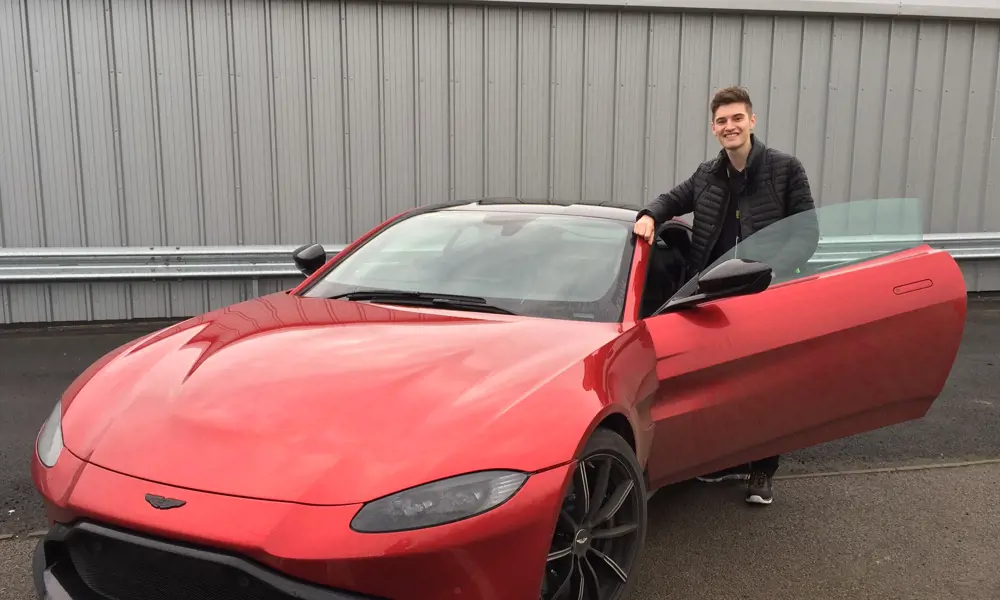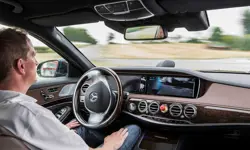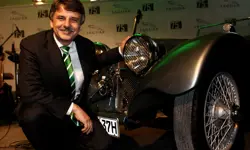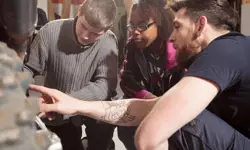
Q&A: Josh Oldham
Quick-fire facts
Age:
22
Qualifications:
Working towards a BEng (Hons) in Applied Engineering at WMG, University of Warwick.
Biggest engineering inspiration:
Both my grandad (who was a mechanical engineer) and Robert Bamford (co-founder of Aston Martin) have been real inspirations to me and are driving forces in staying focused and committed to my role in engineering.
Most-used technology:
iPhone 11.
Three words that describe you:
Inquisitive, enthusiastic, meticulous.
Why did you first become interested in science/engineering?
Two key things inspired me. The first was Lego; as a child I loved to build Lego Technic models and progressed to the more challenging models. I enjoyed seeing what went into making a moveable, functioning model; learning how the mechanisms would perform; and adapting them based on certain inputs and what was needed to make something work.
Second, I had a maths teacher in secondary school who was passionate about the subject. Her passion and the support that she gave me in class truly gave me a love for maths and developed my enjoyment and ability to problem solve. I began to question how I could use this in a career and so I decided that I wanted to pursue engineering.
How did you get to where you are now?
When I progressed to sixth form, I wanted to choose subjects that would be closely linked to a career in engineering and so studied maths, product design, physics, and engineering.
At my sixth form, WMG Academy, I had the opportunity to do a one-week work experience placement at Jaguar Land Rover. This helped me gain an appreciation as to what goes into an automotive business, supporting me as I started my apprenticeship with Aston Martin.
After my studies had finished, I received a call from my career advisor at WMG Academy, telling me that Aston Martin was looking to employ more apprentices and would I be interested in applying. I had already decided that I wanted to go down the degree apprenticeship route as it would allow me to study the theory involved with engineering while applying it at the same time. I accepted the offer and am now in my third year.
I had already decided that I wanted to go down the degree apprenticeship route as it would allow me to study the theory involved with engineering while applying it at the same time
What has been your biggest achievement to date?
At WMG Academy we had regular visits from outside companies to teach us about certain subjects. Employees from Aston Martin presented on subjects such as material selection, manufacturing processes and CAD/CAM. As I went into my first year at Aston Martin, I was given the opportunity to go to WMG Academy and present to the students studying the course that I had completed only a couple of years before. Not only did this mean a great deal to me but it led to another recent great opportunity. In normal years, Aston Martin supports WMG Academy in its open day events. However, because of COVID-19, WMG asked us to send through a short promotional video instead. Another apprentice and I then filmed a video to send to the academy, which was later shared during National Apprenticeship Week by both Aston Martin’s COO and a Minister from the Department for Education, which has been a very encouraging experience.
What is your favourite thing about being an apprentice engineer?
One of my favourite things is that while studying engineering, I get to apply the theory to the workplace and vice-versa. The degree course that I am studying at WMG, University of Warwick, is applied engineering and is specifically for part-time, work-based learners, so the content that is taught can be applied to our places of work. In my first year, I did the module of applied engineering design, where we were tasked to go into our workplaces, identify a problem or challenge faced by the business, and see, using the design principles that we had been taught, how we could amend the issue. Almost every day a new, unknown challenge will arise and it allows me to assess the situation and think about the best option going forward.
One of my favourite things is that while studying engineering, I get to apply the theory to the workplace and vice-versa
What does a typical day at work involve for you?
Well one notable thing about engineering is that no two days are the same and that is especially the case when on a rotational period as an apprentice.
In my current role I am working on the Vantage F1 Edition (recently made public) where my time will be split between working in the office and on the manufacturing line. When a new vehicle is introduced, an issue may arise and it is the role of New Model Launch (NML) to make sure that a concern is raised, it is contained/controlled and we, as a business, work towards a solution. Being in NML means you find yourself constantly working with different departments towards the same goal. I will typically speak to colleagues in different areas, building up relationships and helping one another with challenges we may be facing. On top of this, a typical working day will also involve being given time to work on my university studies.
What would be your advice to young people looking to pursue a career in engineering?
Work experience! I always want to promote work experience as it teaches you how to behave and react to situations that you may face. This can be a part-time or full-time job, an apprenticeship or simply a week’s placement at an engineering company. You constantly learn, which in turn allows you to increase in the skills that you have, and all these things gained can then be transferred to different job roles and day-to-day life. Work experience is only beneficial if you are willing to learn; about different areas, different processes and so on. If you don’t ask questions then you don’t learn, so my advice would be: ask questions to help you grow as an engineer.
What’s next for you?
Thinking short term, I am determined to complete both my degree at WMG and my apprenticeship programme, which are both due to finish September 2022. With these qualifications I would then like to continue with Aston Martin as a senior engineer and progress from there. I haven’t specified a department as I’m still rotating around the business and it may be that in the future I find a department that I would prefer to pursue a career in. If all goes according to plan, the next goal after that would be to continue taking on more responsibility as time goes on, with the aspiration to one day work at a manager or senior manager level.
***
This article has been adapted from "How I got here- Josh Oldham", which originally appeared in the print edition of Ingenia 87 (June 2021).
Keep up-to-date with Ingenia for free
SubscribeRelated content
Mechanical

When will cars drive themselves?
There are many claims made about the progress of autonomous vehicles and their imminent arrival on UK roads. What progress has been made and how have measures that have already been implemented increased automation?

R&D investment makes good business sense
In just five years, Dr Ralf Speth FREng has presided over a revolution in design and manufacturing that has helped create a new family of engines and has overhauled Jaguar Land Rover (JLR) production facilities.

Bikes help improve skills and attitude
The Archway Project is an independently-funded scheme that is expanding its engineering-based programmes by providing BTEC certificates and diplomas. John Milton, the director of the project, explains what the charity does to help reduce anti-social behaviour and improve employment prospects.

High speed evolution
In December 2010, Eurostar International Ltd awarded a contract for 10 new high speed trains to Siemens. The company has used a system developed over decades to maximise the performance and passenger-carrying ability of its 320km/h trains.
Other content from Ingenia
Quick read

- Environment & sustainability
- Opinion
A young engineer’s perspective on the good, the bad and the ugly of COP27

- Environment & sustainability
- Issue 95
How do we pay for net zero technologies?
Quick read

- Transport
- Mechanical
- How I got here
Electrifying trains and STEMAZING outreach

- Civil & structural
- Environment & sustainability
- Issue 95